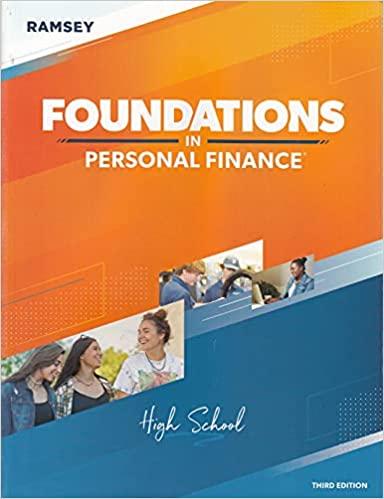Answered step by step
Verified Expert Solution
Question
1 Approved Answer
Time Value Analysis Gary Hudson was born and raised in Pensacola, Florida. He obtained his bachelor s degree in business from Florida State University, where
Time Value Analysis
Gary Hudson was born and raised in Pensacola, Florida. He obtained his bachelors degree in business from Florida State University, where he enrolled in the Naval Reserve Officers Training Corps program. After graduation, he received a commission in the US Marine Corps. Following his release from active duty, Gary used his GI Bill benefits to obtain a masters degree in health services administration from the University of Florida. His first job in healthcare was as a special projects coordinatorfinancial analyst at a large Miami hospital. He enjoyed his work there, but his ultimate goal was to return to Pensacola as the manager of a small healthcare business, where he would have more responsibility and authority. After five years in Miami, Gary became the chief operating and financial officer of Gulf Shores Surgery Centers, an investorowned chain of ambulatory surgery centers with six locations in Floridas Panhandle.
Immediately after assuming his new position, Gary found himself facing several decisions. First Gary had to select a bank or banks to meet the financial needs of Gulf Shores. He has approached two local banks Sun Trust and BankSouth about the interest rates they offer on a savings account and certificate of deposit CD as well as the rate charge on a term loan. Sun Trust and BankSouth offer the same interest rate on each financial product and only differ in the frequency of compounding.
Second, a wealthy patient was so impressed with the care she received at GulfShores that she decided to make a series of donations to the facility. She will donate $ a year for the first six years t through t where t time and $ annually for the following six years t through t The first deposit will be made a year from today t In addition, she has just written a check for $ which Gary will invest immediately t Gary will invest all of the donations in a CD as they become available. CDs are generally offered in maturities of six months to ten years, and interest can be handled in one of two ways: the investor buyer can receive periodic interest payments, or the interest can automatically be reinvested in the CD In the latter case, the buyer receives no interest during the life of the CD but receives the accumulated interest plus the principal amount at maturity. Because the goal of this investment is to accumulate funds for future use, as opposed to generating current income, all interest earned on the CD would be reinvested.
Third, Gulf Shores may launch substantial building renovations. I this circumstance, it would be forced to borrow $ from a bank. Gary is considering two options for a term loan:
A fiveyear term loan that would be repaid in equal annual installments, with the first payment due at the end of Year Gary hopes to pay off the loan early at the end of Year
A sevenyear loan that would be repaid in annual installments of differing amounts, with the first payment due at the end of Year For the first three years of the loan, the annual installment would be projected cash surpluses $ at the end of Year $ at the end of Year and $ at the end of Year For the final four years of the loan, the annual installment would be a fixed but currently unspecified cash flow, X at the end of each year from Year through Year
Finally, Gulf Shores has a boarddesignated building fund to pay for projected facility renovations starting in eight years and lasting for four years at t and Current building renovation costs are estimated to b e $ a year, but they are expected to increase at a rate of percent a year. So far, Gulf Shores has accumulated $at t Garys longrun financial plan is to add $ in each of the next four years at t and Then he plans to make equal annual contributions in each of the following three years t and
All of the decisions Gary faces involve time value analysis.
Based on the term loan interest rate offered by the best bank choice for a term loan: If the Center takes out a fiveyear term loan that would be repaid in equal annual installments, how much will it owe to the bank if Gary decides to pay off the loan early, at the end of the third year?
Step by Step Solution
There are 3 Steps involved in it
Step: 1

Get Instant Access to Expert-Tailored Solutions
See step-by-step solutions with expert insights and AI powered tools for academic success
Step: 2

Step: 3

Ace Your Homework with AI
Get the answers you need in no time with our AI-driven, step-by-step assistance
Get Started


